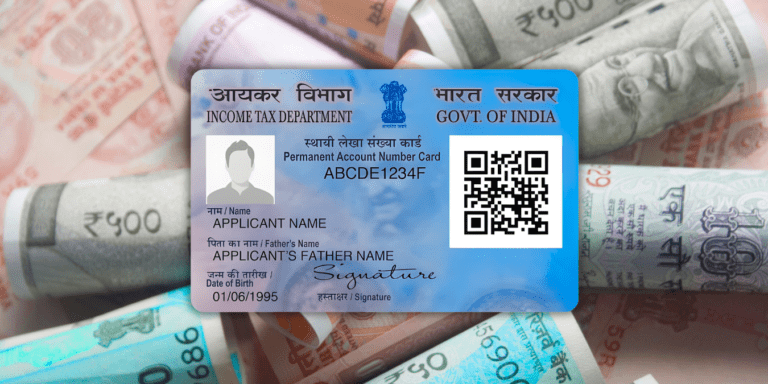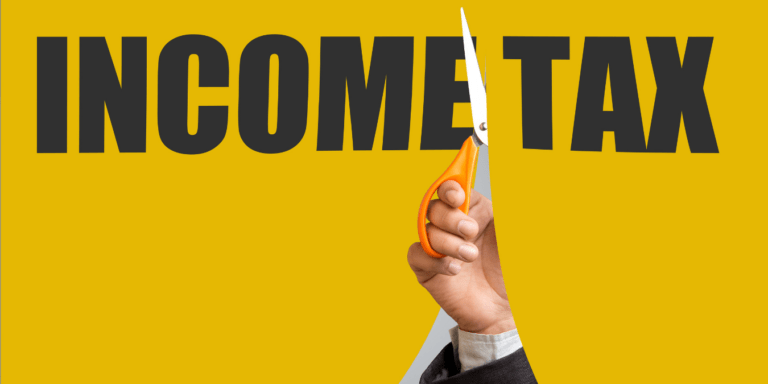
“Everything about presumptive taxation, including Sections 44AD, 44ADA, and 44AE. Learn how this simplified tax system benefits small businesses, reduces compliance burdens, and offers lower tax rates.”
Presumptive taxation is a simplified tax scheme designed to ease the compliance burden on small businesses and professionals. This system allows eligible taxpayers to declare income at a fixed percentage of their turnover or gross receipts, eliminating the need for maintaining detailed accounts. In this blog post, we will delve into the intricacies of presumptive taxation, its applicability, benefits, and recent updates, providing you with the latest data and insights.
What is Presumptive Taxation?
Presumptive taxation is a simplified tax system where the tax liability is determined based on a presumed income rather than the actual income. This method is particularly beneficial for small businesses, freelancers, and professionals who may not have the resources to maintain detailed financial records. The primary objective of presumptive taxation is to reduce the compliance burden on taxpayers while ensuring a steady revenue stream for the government.
Key Sections of Presumptive Taxation
- Section 44AD: This section applies to resident individuals, Hindu Undivided Families (HUFs), and partnership firms (excluding LLPs) engaged in any business except those mentioned in Section 44AE. Under this section, income is presumed to be 8% of the turnover (6% for digital transactions) if the turnover does not exceed ₹2 crore (₹3 crore if digital transactions exceed 95%) .
- Section 44ADA: This section is for resident professionals with gross receipts up to ₹50 lakh (₹75 lakh if digital transactions exceed 95%). Professionals can declare 50% of their gross receipts as income .
- Section 44AE: This section targets individuals, HUFs, firms, and companies engaged in the business of plying, hiring, or leasing goods carriages. Income is presumed based on the number of vehicles owned, with a maximum limit of ten vehicles.
- Section 44BBD: Introduced in Budget 2025, this section caters to non-residents providing services or technology to residents in the electronics manufacturing sector. Profits are calculated at 25% of the amount received for such services.
How does it compare to regular taxation
Here's a comparison between presumptive taxation and regular taxation:
| Aspect | Presumptive Taxation | Regular Taxation |
| Eligibility | Small businesses, professionals, and transporters meeting specific criteria | All taxpayers, including individuals, businesses, and professionals |
| Sections Applicable | Sections 44AD, 44ADA, 44AE, and 44BBD | Various sections of the Income Tax Act, depending on the nature of income |
| Income Declaration | Fixed percentage of turnover or gross receipts (e.g., 8% for businesses, 50% for professionals) | Actual income based on detailed accounts and records |
| Record Keeping | Basic records to substantiate turnover or gross receipts | Detailed accounts and records required |
| Tax Filing Form | ITR-4 for presumptive taxation | ITR-1, ITR-2, ITR-3, ITR-5, etc., depending on the nature of income |
| Audit Requirement | No audit required | Audit required if turnover exceeds specified limits (e.g., ₹1 crore for businesses) |
| Advance Tax Payment | Entire advance tax by 15th March | Quarterly installments (15th June, 15th September, 15th December, 15th March) |
| Deductions Allowed | No further deductions beyond presumptive income | Deductions allowed for business expenses, depreciation, etc. |
| Compliance Burden | Lower compliance burden due to simplified record-keeping | Higher compliance burden due to detailed record-keeping and audits |
| Incentives for Digital Transactions | Lower presumptive rates for digital transactions (e.g., 6% under Section 44AD) | No specific incentives for digital transactions |
| Flexibility | Fixed income declaration provides predictability and ease | Actual income calculation may vary, requiring detailed tax planning |
| Opting Out | Must follow regular tax provisions for the next five years if opted out | Can switch between different tax regimes based on eligibility and benefits |
| Audit Risk | Lower risk of being selected for tax audits | Higher risk of being selected for tax audits |
Key Takeaways
- Presumptive Taxation: Ideal for small businesses, professionals, and transporters who prefer simplified compliance and predictable tax calculations. It reduces the need for detailed record-keeping and audits, making it easier to manage tax obligations.
- Regular Taxation: Suitable for taxpayers with higher turnover or those who can benefit from various deductions and allowances. It requires maintaining detailed accounts and records, which can be more complex and time-consuming.
By understanding the differences between presumptive and regular taxation, taxpayers can choose the most suitable option based on their specific circumstances and compliance capabilities.
Presumptive Taxation in India
In India, presumptive taxation is governed under Section 44AD, Section 44ADA, and Section 44AE of the Income Tax Act, 1961. These sections cater to different categories of taxpayers:
- Section 44AD: Applicable to small businesses with a turnover of up to ₹2 crore. The presumed profit is 8% (6% for digital transactions) of the turnover.
- Section 44ADA: Applicable to professionals like doctors, lawyers, and architects with a turnover of up to ₹50 lakh. The presumed profit is 50% of the turnover.
- Section 44AE: Applicable to businesses involved in plying, hiring, or leasing goods carriages. The presumed profit is ₹7,500 per month or part thereof for each vehicle.
Recent Updates and Changes
The Budget 2025 introduced several updates to the presumptive taxation scheme:
- Section 44BBD: A new section introduced to cater to non-residents providing services or technology to residents in the electronics manufacturing sector. This aims to attract foreign investment and boost the electronics industry in India .
- Increased Turnover Limits: The turnover limit for Section 44AD has been increased to ₹3 crore for businesses with digital transactions exceeding 95% .
- Higher Gross Receipts Limit for Professionals: The gross receipts limit for Section 44ADA has been increased to ₹75 lakh for professionals with digital transactions exceeding 95% .
Advantages of Presumptive Taxation
For Taxpayers
- Reduced Compliance Burden: Taxpayers are not required to maintain detailed financial records, reducing the time and cost associated with tax compliance.
- Lower Tax Liability: Presumptive taxation often results in a lower tax liability compared to the regular tax regime.
- Simplified Tax Filing: The process of filing tax returns is simplified, making it easier for small businesses and self-employed individuals to comply with tax laws.
For Governments
- Increased Tax Compliance: By simplifying the tax process, governments can encourage more taxpayers to comply with tax laws, thereby increasing tax revenues.
- Reduced Administrative Costs: Presumptive taxation reduces the administrative burden on tax authorities, allowing them to focus on more complex tax cases.
- Stable Revenue Stream: Presumptive taxation provides a steady revenue stream, especially from small businesses and self-employed individuals who may otherwise underreport their income.
Challenges and Criticisms of Presumptive Taxation
While presumptive taxation offers several advantages, it is not without its challenges and criticisms:
- Potential for Underreporting: Some taxpayers may still underreport their income, especially if the presumed income is significantly lower than their actual income.
- Lack of Flexibility: Presumptive taxation may not be suitable for all businesses, especially those with fluctuating incomes or high expenses.
- Inequity: Critics argue that presumptive taxation may lead to inequity, as taxpayers with similar incomes may end up paying different amounts of tax depending on the presumed income.
How to Opt for Presumptive Taxation
To opt for presumptive taxation, taxpayers must meet specific eligibility criteria, which vary by country and tax jurisdiction. Generally, the criteria include:
- Turnover Limits: Businesses must have a turnover below a specified threshold.
- Type of Business: Only certain types of businesses, such as small businesses, professionals, and freelancers, are eligible.
- No Audit Requirement: Taxpayers opting for presumptive taxation are usually exempt from tax audits.
Steps to Opt for Presumptive Taxation
- Determine Eligibility: Check if your business or profession meets the eligibility criteria for presumptive taxation.
- Calculate Presumed Income: Calculate your presumed income based on the applicable percentage or fixed amount.
- File Tax Returns: File your tax returns under the presumptive taxation scheme, ensuring that you comply with all relevant tax laws and regulations.
- Maintain Records: While detailed financial records are not required, it is advisable to maintain basic records of your income and expenses.
Case Studies: Success Stories of Presumptive Taxation
India
In India, the introduction of presumptive taxation under Section 44AD has been a game-changer for small businesses. According to a 2020 report by the Ministry of Finance, over 1.5 million small businesses opted for presumptive taxation, resulting in a 20% increase in tax revenues from this segment.
Italy
In Italy, the Regime Forfettario has been highly successful in increasing tax compliance among small businesses and self-employed individuals. A 2021 report by the Italian Revenue Agency found that over 500,000 taxpayers opted for the Regime Forfettario, resulting in a 25% increase in tax revenues.
United States
In the United States, the Qualified Business Income (QBI) Deduction has provided significant tax relief to small businesses. According to a 2022 report by the IRS, over 2 million small businesses claimed the QBI deduction, resulting in an average tax saving of $5,000 per business.
Presumptive taxation is a powerful tool for simplifying tax compliance and increasing tax revenues, particularly for small businesses and self-employed individuals. While it offers several advantages, it is essential to address the challenges and criticisms to ensure its effectiveness and fairness. As the global economy continues to evolve, presumptive taxation schemes are likely to adapt and innovate, providing even greater benefits to taxpayers and governments alike.
With over 15 years of experience in Banking, investment banking, personal finance, or financial planning, Dkush has a knack for breaking down complex financial concepts into actionable, easy-to-understand advice. A MBA finance and a lifelong learner, Dkush is committed to helping readers achieve financial independence through smart budgeting, investing, and wealth-building strategies, Follow Dailyfinancial.in for practical tips and a roadmap to financial success!


































